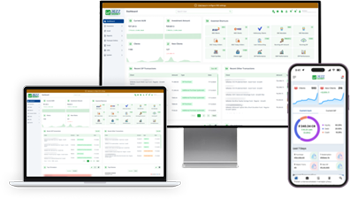Debt funds and equity funds serve different purposes and cater to distinct investor profiles. Debt funds offer a sense of security and regular income. They are generally less volatile, making them ideal for short- to medium-term goals or for investors with a conservative risk appetite. On the other hand, equity funds hold the potential for higher returns and are better suited for long-term goals where you can ride out market fluctuations.
There is no universal rule when it comes to investing; it all depends on your age, income stability, risk tolerance, financial goals, and investment horizon. The key lies in building a diversified portfolio that strikes a balance between safety and growth.
- If you're closer to retirement or prioritizing capital preservation, a larger portion in debt funds is likely a safer bet.
- If you're young, earning steadily, and can withstand market volatility, leaning more toward equity funds can help grow your wealth significantly over time.
- If you're unsure or looking for a simplified approach, a hybrid fund—a mix of debt and equity—can offer a balanced path.
Your investment decisions should reflect your life goals, not just market predictions.
Don't fall into the trap of chasing short-term gains or making impulsive moves based on market noise. Instead, focus on a disciplined approach that is aligned with your financial roadmap.
For personalized guidance, visit JezzMoney or connect with a mutual fund distributor near you.

